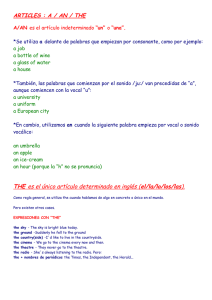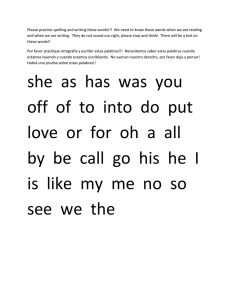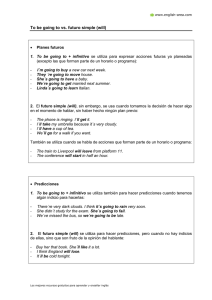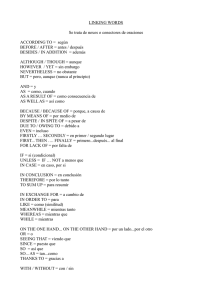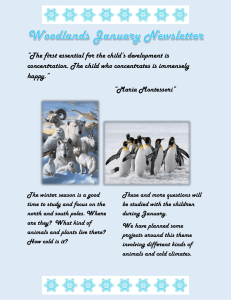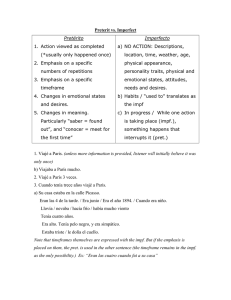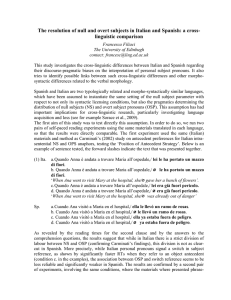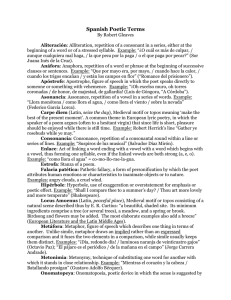A - AN
Anuncio
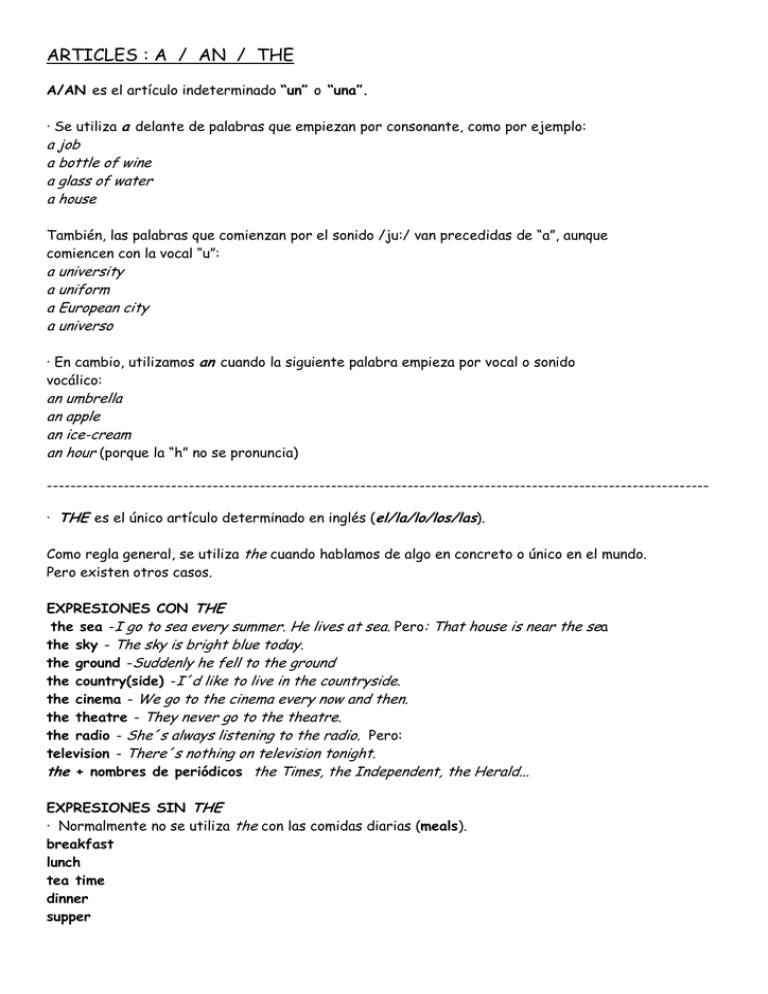
ARTICLES : A / AN / THE A/AN es el artículo indeterminado “un” o “una”. · Se utiliza a delante de palabras que empiezan por consonante, como por ejemplo: a job a bottle of wine a glass of water a house También, las palabras que comienzan por el sonido /ju:/ van precedidas de “a”, aunque comiencen con la vocal “u”: a university a uniform a European city a universo · En cambio, utilizamos an cuando la siguiente palabra empieza por vocal o sonido vocálico: an umbrella an apple an ice-cream an hour (porque la “h” no se pronuncia) ---------------------------------------------------------------------------------------------------------------· THE es el único artículo determinado en inglés (el/la/lo/los/las). Como regla general, se utiliza the cuando hablamos de algo en concreto o único en el mundo. Pero existen otros casos. EXPRESIONES CON THE the sea -I go to sea every summer. He lives at sea. Pero: That house is near the sea the sky - The sky is bright blue today. the ground -Suddenly he fell to the ground the country(side) -I´d like to live in the countryside. the cinema - We go to the cinema every now and then. the theatre - They never go to the theatre. the radio - She´s always listening to the radio. Pero: television - There´s nothing on television tonight. the + nombres de periódicos the Times, the Independent, the Herald... EXPRESIONES SIN THE · Normalmente no se utiliza the con las comidas diarias (meals). breakfast lunch tea time dinner supper bed - I´m tired, I´m going to bed. work - It´s late, I´m going to work now. home - Why don´t you go home? prison - The killer will go to prison. school - Children go to school every day. university - After the exam, I´ll go to university. college - Anne goes to college on Mondays. church - We usually go to church on Sundays. hospital - He must go to hospital for the operation. Utilizamos estos lugares sin the cuando pensamos en ellos como lugares con una utilidad concreta y no como edificios específicos. Sin embargo, llevan the cuando nos referimos al edificio en sí: The prison looks very old. They should rebuild it. She works in the school over there. She goes to the church to clean it. We work in the hospital across the road. · THE CON NOMBRES DE LUGARES. No se utiliza the antes de los topónimos, excepto en estos casos: - Cuando contienen otras palabras, como republic, union, kingdom, states, the United Kingdom, the United States, the Republic of Ireland, ... - Nombres de países en plural - the Nederlands, the Philippines... - Grupos de islas -the Canaries (the Canary Islands), the Bahamas, ... - Regiones - the Far West, the Middle East... - Cadenas montañosas en plural: the Alps, the Andes, the Pyrenees... - Océanos, mares, rios o canales: the Mediterranean (sea), the Thames, the English Channel... · PARA HABLAR DE COSAS O PERSONAS EN GENERAL: - the + nombre contable sing. – The rose is a beautiful flower. - nombre contable plural - Roses are beautiful flowers. En ambos ejemplos se habla de la flor en general, no de una específica. - the + adjetivo - the homeless, the rich, the beautiful, the talented, the old, the young... En estos casos se habla de colectivos de personas, en plural por tanto. - the + nacionalidad - the Irish, the English, the Scottish, the Welsh, the Spanish, the Dutch... - (the) + nacionalidad + s - the Italians, the Greeks, the Bulgarians, the Russians... Así nos referimos a la población de un país. Añadimos –s a la nacionalidad cuando ésta no acaba en –sh, -ch, -s, se.
